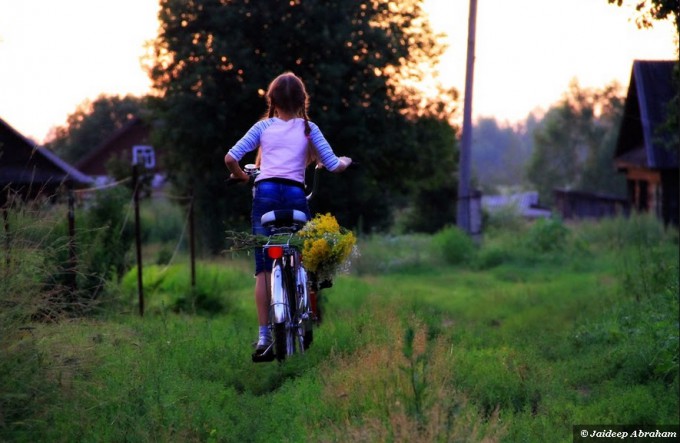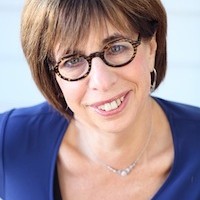*Disclaimer: The below represents the personal opinion, view or experience, of the author, and can not reflect elephant journal as a whole.
Disagree with this Op-Ed or opinion? We’re happy to share your experience. If you are offering a rebuttal, please say so in notes, and we will give it priority if it passes the smell test. elephant takes our role as a community forum as a fun privilege, and is always happy to make corrections or in rare cases take an article down as need be.
Elephant is a diverse community. We are reader-created. Many blogs here are experience and not fact or The One Right Point of View. We welcome all points of view, especially when offered with more sources and less invective, more frankness and less PR. Dislike this Op-Ed or opinion? Share your own take here.
I thought it was love—the kind young girls dream about.
A passion too bold, too grand, for our timid little world to handle.
She said she’d never felt this way before.
She wanted to spend the rest of her life with me, and I had never felt so cherished, so visible, even though everything that had happened between us took place in the dark.
It was always late at night while the other girls slept.
By day I was just another camper, a gawky girl who favored juicy novels over swimming in the freezing lake. Everybody had crushes. Like color war between the blue and the gray teams, having a crush on the counselors was a camp custom.
More than anything the camp had to offer, we craved the affection and attention of these bronzed muscular goddesses. They affirmed our spirit, our quirks and dreams in ways our own mothers never could.
Harboring a crush on the counselors felt as safe as falling in love with Elvis—nothing ever came of it because of the un-breachable boundaries between us and them.
Except for me.
I was 14 and she was 28 when she started touching me. The year was 1962. I’d never heard of sexual abuse, and it would be decades before the subject started making headlines.
Naming What Happened:
It took me 30 years before I understood that, according to the laws of New York State (where my camp was located), I had been raped.
Until then I thought that what went on between my counselor and me was a relationship—a little strange maybe, but a relationship.
I just assumed that the shame—the badness I still carried around inside—was my hangup.
As far as I knew, incest and sexual abuse were unspeakable acts committed by fathers, uncles, grandfathers and generic male perverts—not women!
What’s more, I’m a feminist.
Even if it had occurred to me that I was not an equal partner in deciding to be sexual with my counselor, it would have felt traitorous to point the finger at a sister—especially a lesbian who already belonged to an oppressed group.
But while in the course of writing a magazine article on recovered memories of sexual abuse, I finally understood that I had been abused.
Raped.
Molested.
I couldn’t stop crying for a week.
It turns out that women are perpetrators in about 14 percent of sexual assault cases against boys, and in six percent of cases against girls. These are conservative estimates, which could be because so few incidents of sexual abuse by females are ever reported.
What’s more, professionals throughout the mental health and criminal justice systems tend to disbelieve cases of sexual abuse perpetrated by women, even though those cases cause just as much harm as the more typical cases involving male assailants which make the evening news.
In the end, it didn’t matter that my counselor was a woman because ours was not a story of love between women.
The fact that she was a woman just made it harder to see what the real story was.
Violation is violation, whether it comes on tiptoes, or breaks down the door with an ax.
The Power Of Telling The Truth:
To admit the violation—to lay bare the dirty secret and name it for what it was—stripped me of my power.
It was a power I had never really had—an illusion of power that I had clung to for 30 years.
Owning up to the truth also meant confronting the damage which manifested itself as an uncertainty over my sexuality.
I had two failed marriages.
I confused sex with power.
I confused hunger and longing as love.
I had a desperate need to be seen, and the belief coded in my body was that sex was the only way to make that happen.
Acknowledging the truth returned to me my innocence.
The truth brought back the shy girl I was before my counselor crossed the line, and I began to see—slowly, tentatively—that I hadn’t done anything wrong.
I wasn’t bad.
Eventually, that shy, lonely girl who had depended on others for confirmation of her self worth stepped out from the shadows to proclaim herself.
And to speak the truth to anyone who would listen.
In honor of April being Sexual Assault Awareness Month, I have compiled some statistics we should all be aware of.
These numbers, provided by the Rape, Abuse and Incest National Network, are staggering:
>> It is estimated that 237,868 Americans are sexually assaulted every year.
>> Every two minutes another American is sexually assaulted.
>> 60% of sexual assaults are not reported to police.
>> Approximately two out of three assaults are committed by someone known to the victim.
>> 44% of victims are under age 18; 15% are under age 12; 80% are under age 30.
In addition,victims of sexual assault are:
>> Three times more likely to suffer from depression
>> Four times more likely to contemplate suicide
>> Six times more likely to suffer from PTSD
>> 13 times more likely to abuse alcohol
>> 26 times more likely to abuse drugs
The National Sexual Assault Hotline is 1-800-656-HOPE (4673)
Love elephant and want to go steady?
Sign up for our (curated) daily and weekly newsletters!
Apprentice Editor: Brandy Mansfield / Editor: Rachel Nussbaum
Photo: Jaideep Abraham on Pixoto







Read 0 comments and reply